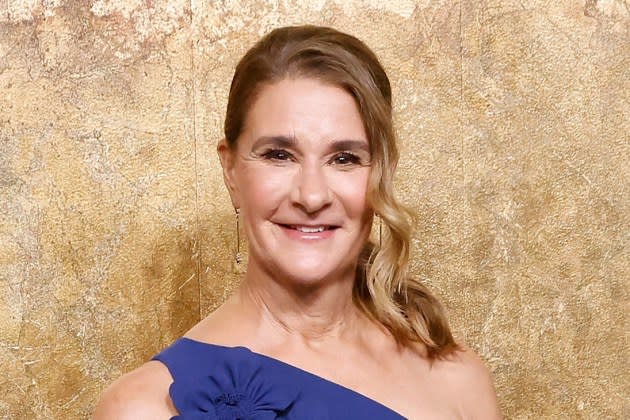Melinda French Gates Says Elon Musk, Peter Thiel and Other Billionaires Are Not Philanthropists
In a recent conversation with The New York Times, Melinda French Gates, the co-chair of the Bill and Melinda Gates Foundation and an influential figure in philanthropy, expressed her thoughts on the so-called 'new generation' of billionaire activists emerging in today’s society. Among those mentioned were prominent figures such as Elon Musk, Jack Dorsey, Bill Ackman, and Peter Thiel. This discourse sheds light on the shifting dynamics of philanthropy in the United States and invites a closer examination of what it means to be a philanthropist in the modern age.
A Distinct Classification of Billionaires
During her interview, Melinda French Gates posited a significant distinction between the traditional philanthropists, like her ex-husband Bill Gates and Warren Buffett, and the newer wave of billionaire activists. This response was sparked by a discussion surrounding these affluent individuals, many of whom are pioneers of technology and finance, yet have garnered criticism for what she deems a lack of genuine philanthropic engagement. “The people you just named have not been very philanthropic yet,” French Gates asserted, emphasizing her belief that mere financial power does not equate to philanthropic action. While these individuals may utilize their platforms and resources to influence discussions on pertinent societal issues, she implies that their contributions fall short of charitable giving worthy of the title 'philanthropists.'
French Gates’s remarks encourage a deeper inspection of what constitutes true philanthropy. The traditional model, as represented by her and her ex-husband’s extensive charitable donations through their foundation—amounting to nearly $80 billion since its inception in 2000—stands in stark juxtaposition to the actions of this new breed of billionaires. Interestingly, while acknowledging that some of the aforementioned billionaires have signed the Giving Pledge—a commitment by the wealthiest individuals to donate a significant portion of their fortunes to philanthropic causes—she remained skeptical about their tangible contributions.
Examining the Giving Record
Melinda French Gates urged a closer look at the philanthropic record of these billionaire activists. Her assertion that “[t]he record of actually giving money to society... is not big,” speaks volumes about her criteria for measuring philanthropy. It isn’t merely about public posturing or the ability to mobilize large audiences; rather, she suggests that substantive financial contributions are what truly define a philanthropist. This perspective draws attention to the necessity of financial accountability and the expectations that come with vast wealth—a reminder that impactful philanthropy requires more than just vocal advocacy; it calls for a commitment of resources that can drive meaningful change.
Moreover, French Gates delineated how this newly emerging class of billionaires can lead to a disillusionment regarding the conventional understanding of philanthropy and possibly reshape societal expectations. With great wealth comes a great responsibility, one that she argues should involve redressing societal inequities through actionable change rather than merely speaking on issues from a pedestal.
Engaging in Political Discourse
The conversation veered into French Gates’s recent decision to engage more vocally in political matters. Notably, she supported President Joe Biden during his campaign, and more recently, after he suspended his candidacy, she shifted her backing to Vice President Kamala Harris. She articulated that this political engagement stemmed from a moral imperative, particularly following the Supreme Court’s controversial Dobbs v. Jackson decision, which had far-reaching implications for women’s reproductive rights in the United States.
“I knew I had to speak out in favor of women’s rights…and I felt that that decision, because of all the downstream repercussions…it’s so severe,” French Gates asserted, indicating that her stance was fueled by an urgent need to advocate for women’s issues that directly affect their health and rights. This candid admission underscores her conviction that philanthropic efforts must also encompass political activism, particularly in areas severely impacted by policy decisions.
The Reaction from the Billionaire Community
Following French Gates's endorsement of Biden, her remarks ignited reactions from the billionaire community, notably from Musk, who publicly responded with skepticism about the potential implications of her endorsement, dubbing it a potential “downfall of western civilization.” French Gates, unfazed by Musk’s critique, dismissed it as “silly,” further reinforcing her commitment to her beliefs and her intent to use her platform to champion issues she cares deeply about.
Conclusion
Melinda French Gates’s insights into the nature of philanthropy among contemporary billionaires bring forth a critical conversation about the responsibilities that accompany immense wealth. In a landscape increasingly characterized by superficial engagement rather than substantive contributions, her clarion call for accountability and genuine charitable action resonates strongly. As she delineates between what it means to be a true philanthropist versus those who merely wield their influence without corresponding action, her perspective serves as both a critique and an invitation for deeper reflection on the role of wealth in society today.
